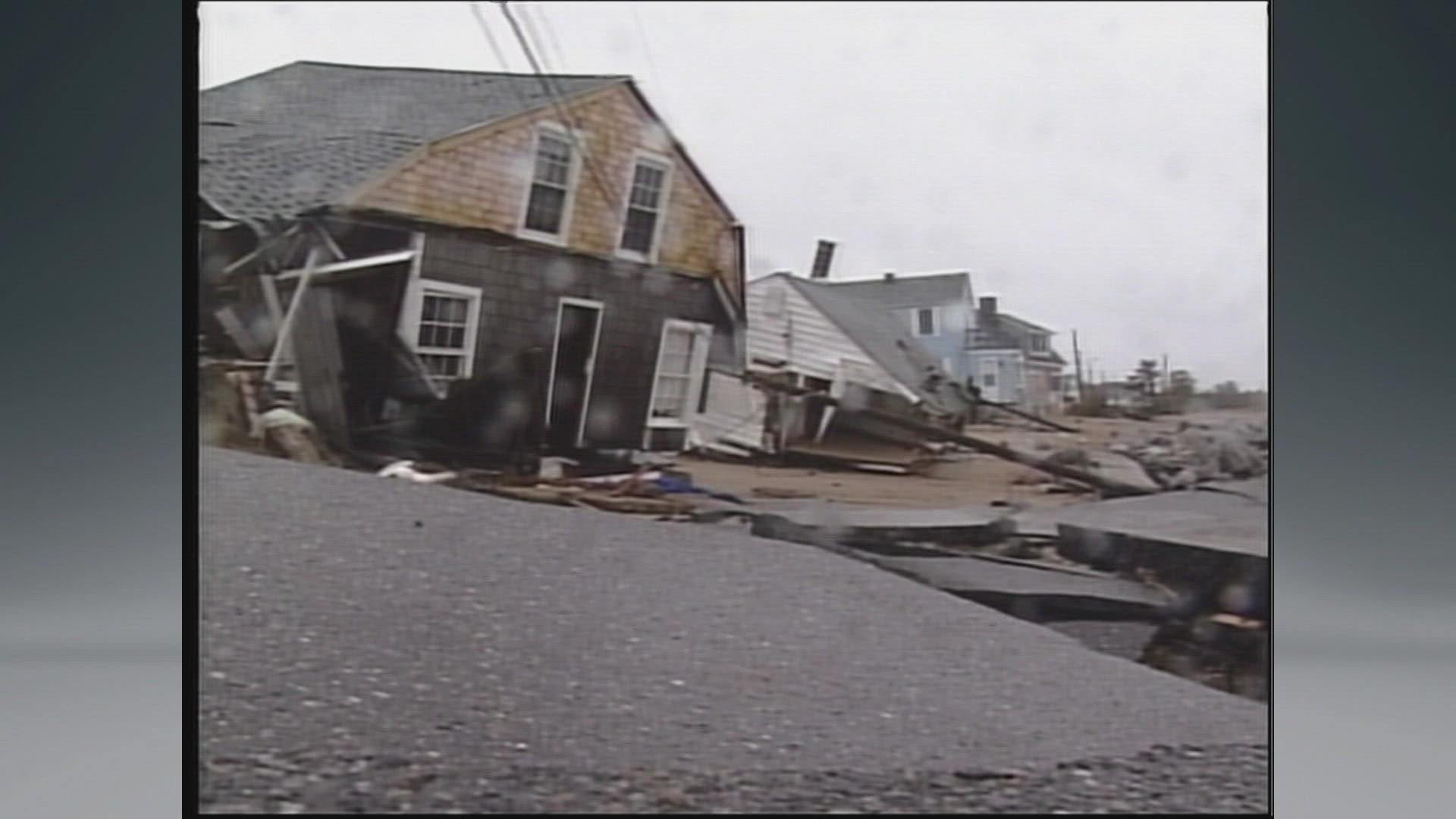SACO, Maine — People near Camp Ellis and greater Saco Bay are no strangers to the effects of erosion.
Dozens of homes have previously fallen into the sea after years of the beach wasting away underneath them. The disasters are largely blamed on the town’s jetty, built at the beginning of the last century by the Army Corps of Engineers.
The nonprofit Save Our Shores Saco Bay hosted a conference on Tuesday to address the ongoing erosion. A total of 90 people signed up to attend, including speakers from local and state government, universities, and science departments.
Some ideas have already been put into place, like replanting dune grass and building a rock wall in front of houses closest to the water. Other ideas were proposed, like taking concrete barriers, called "wave attenuation devices," offshore and sinking them, slowing the force of waves.
SOS President Kevin Roche said the state needs to treat this issue with the right level of urgency.
"If you were in the middle of Maine and you had sinkholes taking away a neighborhood of houses, our government would do something immediately," he said. "And this is how we've got to think of it."
State Marine Geologist Peter Slovinski participated in a panel discussion at the conference and said Maine’s predicted sea rise of one-and-a-half feet by 2050 will only accelerate erosion along our coast.
"The beach is the first line of defense; the dunes are the second line of defense for everything inland – whether it’s a natural pitch pine habitat or a built-up section of shoreline with houses," Slovinski said.
In Saco Bay and across much of Maine's coast, it’s likely going to take care for nature as well as creative engineering to stem the tide.

